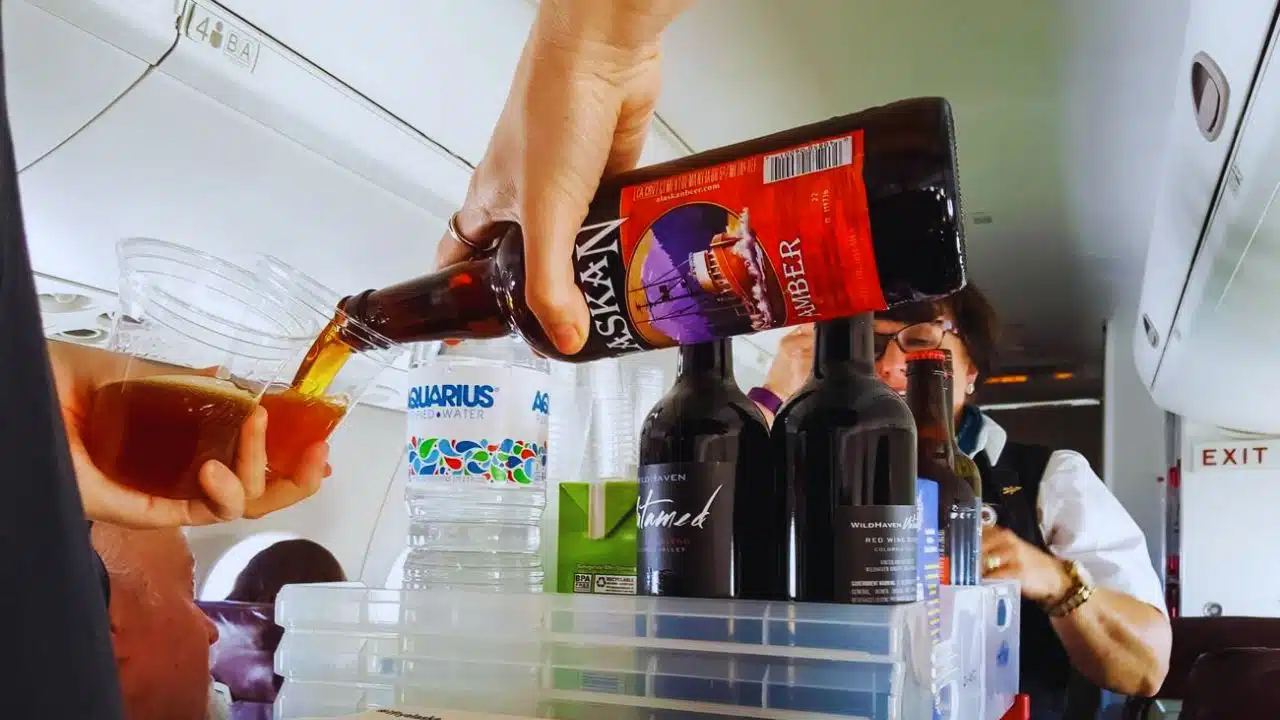Drinking alcohol on an airplane might seem like a tempting indulgence, whether to unwind or enhance the travel experience. However, experts caution that consuming alcohol at high altitudes presents unique health risks that passengers should carefully consider.
From accelerated intoxication to heightened dehydration and increased risks of blood clots and heart strain, the effects of alcohol on planes can significantly impact passenger well-being.
In this article, we delve into why experts advise against drinking alcohol during flights and provide essential tips for those who choose to indulge responsibly. Understanding these factors can help travelers make informed decisions to ensure a safer and more comfortable journey.
Getting Drunk Faster at High Altitudes
When you drink alcohol on a plane, the effects can hit you faster than on the ground. Dr. Thomas Pontinen explains that at higher altitudes, where oxygen levels are lower, your body struggles more to metabolize alcohol.
This can lead to quicker intoxication, making you feel dizzy, headachy, or confused, which is particularly risky for older adults or those with medical conditions.
Impact on Dehydration
Airplane cabins have low humidity levels, which can dehydrate you without alcohol. Adding alcohol to the mix further depletes your body of water, potentially causing symptoms like dizziness and fatigue.
Dr. Elizabeth Sharp recommends drinking water and alcoholic beverages to help mitigate dehydration.
Increased Risk of Blood Clots
Alcohol, combined with prolonged sitting during flights, increases the risk of developing blood clots (deep vein thrombosis).
This risk is heightened if you combine alcohol with other factors like lack of movement or certain medications. Dr. Warns against behaviors like crossing legs, which can further complicate blood flow.
Heart Health Concerns
Recent studies have shown that drinking alcohol on planes can strain your heart, especially during sleep. This effect is compounded by reduced oxygen levels at high altitudes.
For people with preexisting heart conditions or breathing disorders like sleep apnea, avoiding alcohol before flights is strongly advised to prevent further strain on the heart.
Recommendations for Safer Drinking
If you choose to drink alcohol during a flight, experts suggest moderation and preparation:
- Eat Before You Drink: Consuming food, especially slow-digesting items like nuts or yogurt, can help slow alcohol absorption.
- Stay Hydrated: Drink water along with alcohol to counteract dehydration effects.
- Limit Intake: Stick to no more than two drinks, even on long flights, to minimize health risks.
Wrap up
While the allure of a drink in the air may be strong, the health risks associated with alcohol consumption on planes are significant.
Experts recommend avoiding alcohol altogether, especially for those with underlying health conditions. If you drink, do so responsibly and be mindful of your body’s reactions.
By understanding these risks and following expert advice, you can ensure a safer and more comfortable flight experience, prioritizing your health above momentary indulgence.
The information is taken from CNN and Yahoo News








































